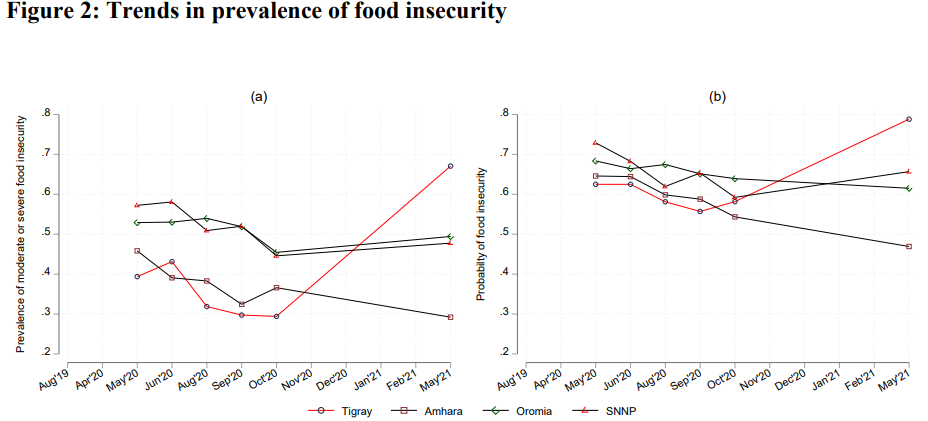 Image by rawpixel.com
Image by rawpixel.com
This blog is a biweekly feature highlighting recent working papers from around the World Bank Group that were published in the World Bank’s Policy Research Working Paper Series. This entry introduces 5 papers published from April 1 to April 15 on various topics, including COVID-19, tax policies and welfare and livelihood impacts of a civil war.
The first two papers we introduce in April 2022 are on topics related to the COVID-19 pandemic. In A Few Good Masks : Evidence from Mask Manufacturing in Rwanda during the COVID-19 Pandemic, Florence Kondylis and coauthors explore if increases in mask supply slow the spread of COVID-19 in Rwanda. In Talk or Text Evaluating Response Rates by Remote Survey Method during COVID-19, Lelys Dinarte-Diaz and coauthors explore the significant challenges in selecting a method to conduct remote surveys collecting sensitive information in the midst of the COVID-19 lockdown in El Salvador.
-
A Few Good Masks : Evidence from Mask Manufacturing in Rwanda during the COVID-19 Pandemic shows that increases in the supply of certifiably high-quality masks decreased mask prices and slowed the spread of COVID-19 in the early stages of the pandemic in Rwanda. The authors estimate these impacts within an event study design using receipt-level tax data, leveraging spatial variation in exposure to domestic mask manufacturing before and after a national policy required licensing for domestic textile manufacturers to produce masks. The authors find that exposure to licensed mask manufacturing decreased mask prices, increased quantities purchased of domestically manufactured masks, and reduced COVID-19 infections; evidence provided also suggests that increased mask quality likely explains impacts of mask manufacturing exposure on the spread of COVID-19. See Figure 1 below. To view all columns and tables referenced below please access paper.
Figure 1: Mask manufacturing exposure increases purchases of masks from manufacturers, decreases mask prices, and reduces COVID-19 infections

-
Significant challenges arise in selecting a method to conduct remote surveys, especially when collecting sensitive information. In the context of the COVID-19 lockdown, Talk or Text Evaluating Response Rates by Remote Survey Method during COVID-19 randomly selected about 600 adults in El Salvador to survey using two different tools: telephone interviews or a self-completion survey via WhatsApp. The findings show that phone-based surveys increase the rate of survey completion by 42 percentage points. Even larger effects are documented for women and older adults. Although the direct costs of phone-based surveys are substantially higher—doubling implementation cost—the estimates imply that when adjusted for the probability of completion, the costs of conducting phone-based surveys can be 25 percent lower.
For the last two papers we introduce this round we travel to Ethiopia and Colombia to explore the welfare impacts of civil war and tax policies respectively. In Near-Real-Time Welfare and Livelihood Impacts of an Active Civil War : Evidence from Ethiopia, Kibrom Tafere and coauthors provide fresh evidence on impacts of the conflict on the food security and livelihood activities of affected households. In Welfare and Environmental Benefits of Electric Vehicle Tax Policies in Developing Countries : Evidence from Colombia, Jevgenijs Steinbuks and coauthors analyze existing and proposed policies aiming to reduce emissions from new passenger vehicles in Colombia.
-
Near-Real-Time Welfare and Livelihood Impacts of an Active Civil War : Evidence from Ethiopia uses unique High-Frequency Phone Survey data to provide evidence on the impacts of the conflict on the food security and livelihood activities of affected households. The analysis uses difference-in-differences estimation to compare trends in the outcomes of interest across affected and unaffected regions (households) and before and after the outbreak of the civil war. The findings show that seven months into the conflict, the outbreak of the civil war increased the probability of moderate to severe food insecurity by 38 percentage points. Using the Armed Conflict Location and Event Data on households’ exposure to violent conflict, the analysis shows that exposure to one additional battle leads to a 1 percentage point increase in the probability of moderate to severe food insecurity. The conflict has reduced households’ access to food through supply chain disruptions while also curtailing non-farm livelihood activities. Non-farm and wage-related activities have been the most affected by the conflict, while farming activities have been relatively more resilient. Similarly, economic activities in urban areas have been much more affected than those in rural areas. The paper highlights the potential of phone surveys to monitor active and large-scale conflicts, especially in contexts where conventional data sources are not immediately available. In figure 2 below, panel (a) shows that prevalence of moderate or severe food insecurity (experienced during the previous month) more than doubled in Tigray after the outbreak of the civil war, jumping from about 30 percent during the immediate pre-war round to about 67 percent in May 2021. Similarly, panel (b) shows that the share of households experiencing food insecurity in Tigray increased by 25 percentage points (from 55 percent to 80 percent).

-
Colombia has used preferential sales taxes and import tariffs to stimulate hybrid and electric car sales. In Welfare and Environmental Benefits of Electric Vehicle Tax Policies in Developing Countries : Evidence from Colombia the authors analyze existing and proposed policies aiming to reduce emissions from new passenger vehicles. Using highly detailed data on vehicle purchases and attributes, the paper finds that Colombia’s sales tax and import tariffs have increased hybrid and electric vehicle market shares by 0.9 to 2.7 percentage points at welfare costs of $40-$48 per ton of carbon dioxide reduction. Potentially taxing carbon dioxide emissions rates of new vehicles would have roughly similar welfare costs. The high welfare costs of these policies arise from preexisting distortions caused by market power, which yields large private welfare costs of shifting from gasoline to hybrid and electric vehicles.
The following are other interesting papers published in the first half of April. Please make sure to read them as well.
-
The Consequences of the COVID-19 Pandemic for Children in Kenya (Cameron,Emma Ward Richardson,Delius,Antonia Johanna Sophie,Devercelli,Amanda Epstein,Pape,Utz Johann,Siewers,Samuel)
-
Tracking Economic Fluctuations in Bangladesh with Electricity Consumption (Arshad,Selvia,Beyer,Robert Carl Michael)
-
FDI, Market Power, and Markups : Evidence from Vietnam (Yue Li,Kuo,Ryan Chia,Pinzon Latorre,Mauricio Alejandro,Albertson,Mark Peter)
-
The Impact of Ethiopia’s Road Investment Program on Economic Development and Land Use : Evidence from Satellite Data (Alder,Simon,Croke,Kevin,Duhaut,Alice,Marty,Robert Andrew,Vaisey,Ariana Brynn)
-
Poverty in India Has Declined over the Last Decade But Not As Much As Previously Thought (Sinha Roy,Sutirtha,Van Der Weide,Roy)
-
Firm Resources, Strategies, and Survival and Growth during COVID-19: Evidence from Two-Wave Global Surveys (Fang,Sheng,Goh,Chorching,Li,Shaomin,Xu,L. Colin)
-
Impacts of Temporary Migration on Development in Origin Countries (Bossavie,Laurent Loic Yves,Ozden,Caglar)
-
Million Dollar Plants and Retail Prices (Bhardwaj,Abhishek,Ghose,Devaki,Mukherjee,Saptarshi,Singh,Manpreet)
-
Globally Engaged Firms in the COVID-19 Crisis (Constantinescu,Ileana Cristina,Fernandes,Ana Margarida,Grover,Arti Goswami,Poupakis,Stavros,Reyes Ortega,Santiago)
-
Fathoming Shipping Costs : An Exploration of Recent Literature, Data, and Patterns (Ardelean,Adina Teodora,Lugovskyy,Volodymyr,Skiba,Alexandre,Terner,David Michael)



Join the Conversation